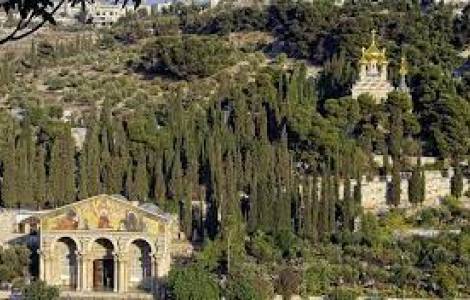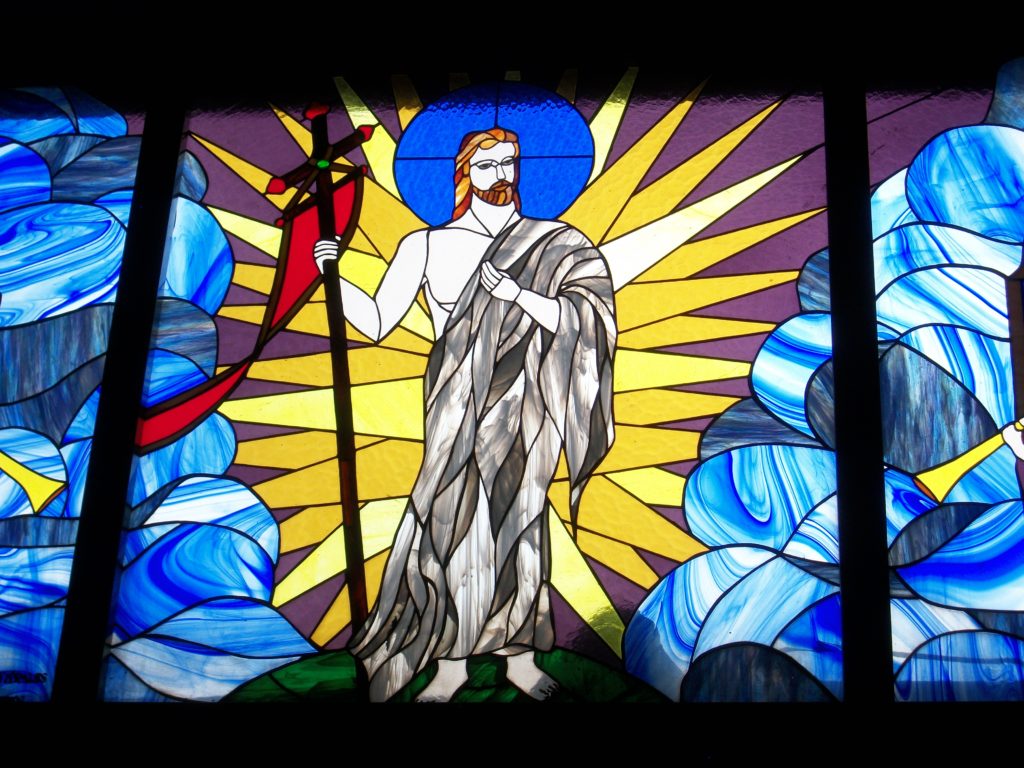Mount of Olives Project Draws Christian Concerns
Israeli Authorities to Expand Boundaries of National Park to Encompass Ecclesiastical Land

The Mount of Olives, in Jerusalem, is at the center of a project initiated by the Israeli authorities to expand the boundaries of a National Park to encompass ecclesiastical land located in that area, dear to the faith of Christians all over the world. The steps taken to implement the project have alarmed the Churches of the Holy Land, and have prompted the representatives of some of them to write a letter to the Israeli minister for the environment to stop the plan in question, according to Fides News Agency.
The project, so far not publicized, is identified with the Plan 101-674788 would see the borders of the Jerusalem Walls National Park extended to include a large section of the Mount of Olives along with additional parts of the Kidron and Ben Hinnom Valleys. The Plan, promoted by the Israeli Authority for Parks and Nature (INPA), should be presented to the Jerusalem municipality’s Local Planning and Construction Committee for preliminary approval on March 2. Meanwhile, on Friday, February 18, Greek Orthodox Patriarch of Jerusalem Theopolis III, Catholic Church Custos of the Holy Land Francesco Patton, and Armenian Patriarch of Jerusalem Nourhan Manougian penned a letter to Environmental Protection Minister Tamar Zandberg, whose office oversees the INPA, calling on her to take steps to get the planned expansion shelved. “Although the plan is officially presented by the INPA” – reads some excerpts of the letter, published by the online newspaper The Times of Israel – it seems that it was put forward and is being orchestrated, advanced, and promoted by entities whose apparent sole purpose is to confiscate and nationalize one of the holiest sites for Christianity and alter its nature”.
In the letter from the high ecclesiastical representatives, the plan is defined as “brutal”: “Under the guise of protecting green spaces, the plan appears to serve an ideological agenda that denies the status and rights of Christians in Jerusalem”, the letter said.
The church leaders also sent the letter to the Jerusalem consuls general of France, Turkey, Italy, Greece, Spain, the UK, Belgium, and Sweden.
The spokespersons of the INPA report that the project only intends to safeguard the natural and historical heritage of the area from an environmental point of view, and would not formally affect the property rights of private individuals or church entities that own the land.
The Jerusalem Walls National Park – according to The Times of Israel – opened in the 1970s. When the state moved to draw the borders for the project, it carefully avoided including much of the Mount of Olives where over a dozen historical Christian holy sites are located, including the Bridgettine Sisters Monastery, the Church of Viri Galilaei, the Grotto of Gethsemane, and the Garden of the Apostles. At that time, the authorities had already considered a “phase two” of the project, aimed at expanding the National Park, but that option was shelved at the time so as not to arouse predictable reactions, given the peculiar nature of the area it was intended to incorporate. More than five decades later, the expansion project is now being revived, while members of anti-government groups in Israel suspect it is intended to gradually reduce the Palestinian presence in the disputed areas of East Jerusalem. According to these analysts, the plan to expand the national park is also part of a broader nationalist strategy to “encircle” the Old City of Jerusalem.
Related

The Perspectivas del Trabajo Foundation is founded with the aim of promoting virtues for professional development
Exaudi Staff
25 April, 2025
2 min

Reflection by Bishop Enrique Díaz: Alleluia, alleluia
Enrique Díaz
20 April, 2025
5 min

Christ is Risen! Alleluia! Commentary by Fr. Jorge Miró
Jorge Miró
20 April, 2025
3 min

Easter: Mystery of Freedom
Carlos J. Gallardo
20 April, 2025
5 min
 (EN)
(EN)
 (ES)
(ES)
 (IT)
(IT)

